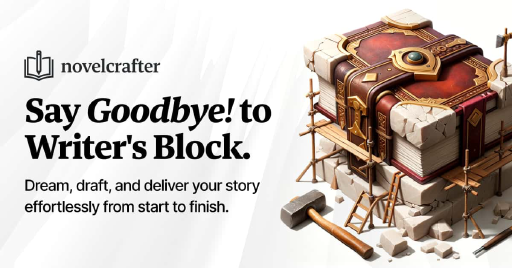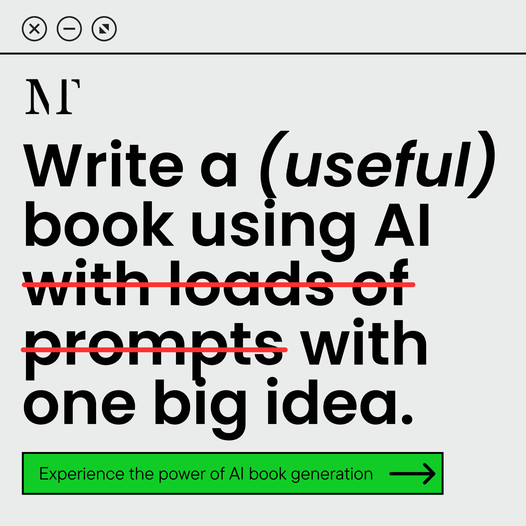Developing Your Writing Style
Turning your drafts into a great story isn’t just in what you say, it’s how you say it. Your writing style does the heavy lifting when it comes to connecting with folks and putting your spin on things. While it might not happen overnight, honing your style is a rewarding adventure for anyone with a taste for wordsmithery.
Finding Your Unique Voice
Finding your groove in writing means being open to trying new things and figuring out what clicks. It’s often a funny sort of dance between what you want to say and what you think folks want to hear (Medium). To kick off this self-discovery journey, here’re some tips that might do the trick:
- Read Around the Block: Get your nose into different books. It’ll help you see what vibes with you and what doesn’t.
- Write Every Day: You’re only going to get better by putting in the time. Use writing prompts or just jot your thoughts in a journal.
- Look Back: Flip through your old scribbles to spot the patterns and emotions that feel the most “you”.
- Play Around: Don’t shy away from trying different genres or tones. It might just show you a side of your writing you never knew.
Overcoming Writer’s Block
Getting stuck in a writing rut is the pits and can make you want to hurl your laptop out the window. But, understanding why it happens and having a game plan can help you swing back into action. Check out these tips from those who’ve been there:
- Nail Down the Issue: Sometimes, what’s holding you back is more than it seems, like a plot twist gone haywire or everyday stress (Alyssa Matesic). Get to the root, and you might just find your flow again.
- Take a Breather: Whether it’s a walk in the park, or stepping away from tech, a break can be just the thing to clear your head (Alyssa Matesic).
- Skip the Stuck Parts: When a part of your story isn’t budging, set it aside for a bit. Fresh eyes on it later might just do the trick (Alyssa Matesic).
- Set a Timer: Commit to writing a little bit each day. The structure helps keep writer’s block from digging in its heels (Alyssa Matesic).
Getting a handle on your voice and jumping hurdles like writer’s block are milestones that every writer hits on this wild ride. Use these tips to sharpen your skills and keep your creative juices flowing. If you’re hungry for more helpful nuggets, check out our pages on beginner writing tips and creative writing exercises.
Enhancing Your Writing Skills
Becoming a top-notch author isn’t just about stringing words together; there are clever methods and cheeky tricks that can give your pen a persona. Let’s have some fun with experimental writing tricks, mix up your projects, and get your brain buzzing with creative strategies.
Experimental Writing Techniques
Trying out different writing styles is like sampling a smorgasbord of flavors before settling on your favorite dish. Here’s a few to tickle your fancy:
- Stream of Consciousness: Give your inner critic the day off and let your thoughts spill onto the page without a care for grammar or whether it makes sense. You might stumble upon your next great plot twist.
- Dialogue-Only Scenes: Ditch the narrative and let your characters gab. It’s a great way to get their personalities to pop and your conversations to sound real.
- Flash Fiction: Get to the point with stories under 1,000 words. It’s like speed dating for plots—fast and furious.
These techniques encourage you to break free from your norms and explore. You can find more mind-bending exercises over in our creative writing exercises zone.
Diversifying Your Writing Projects
Switching up your projects is like taking a stroll through a writer’s buffet. Taste a little of everything, keep your mind fresh, and pick up loads of styles. Check these out:
| Type of Project | What It’s About |
|---|---|
| Short Stories | Get in, get out. Focus your tales in tight word limits. |
| Poetry | Play with sounds and pictures made of words. |
| Articles/Essays | Flex your muscles on topics for mags or blogs. Be heard and get seen. |
| Novels | Dive deep into plot and character over hundreds of pages. Go epic or go home! |
| Scripts | Tell your story straight to stage or screen. Directions, not descriptions, are key. |
Jumping between these styles helps you develop a unique voice and see how each discipline can teach the others a thing or two. So, if you’re penning the next bestseller, browse our tips for writing a novel.
Creative Writing Strategies
Stay inspired and bust that writer’s block with a little creativity cooked up in these strategies. Here’s how to keep your pen moving when the ideas start snoozing:
 What Poetry Feels Like
What Poetry Feels Like- Writing Prompts: Sometimes, the muse just needs a nudge. Check out easy writing prompts to get your brain jogging again.
- Set a Routine: Good habits are the foundation of creativity. Peek at how to build a writing routine for some handy hacks.
- Join a Writing Group: Share your scribbles and scribble over feedback. Writers are the best people to bounce ideas around with—find your tribe online or nearby.
Mix these tricks into your day-to-day, and you’ll be amazed at how your writing grows. Remember, it’s a non-stop adventure filled with new learning and bright sparks on every page. For more ways to up your game, hop over to how to improve writing skills.
Building Your Author Platform
So, you’re a writer on a mission, right? You’re itching to connect with readers and carve out your place in the literary playing field. Well, let’s get you sorted with some nifty tricks to build a platform that screams ‘hey, notice me!’ while you work that pen like Picasso with words.
Importance of Audience Connection
Forget the mysterious author locked away in a castle; today’s world wants authors mingling with readers. And not just your mom and your aunt, but a tribe of book-loving folks who can’t wait to turn those pages. Editors and literary agents dig writers who bring that personal spark to the table. A strong platform isn’t just a nice-to-have; it shapes you into a star readers can’t ignore (Writers On The Move).
Building an audience? Oh, it’s a marathon, not a sprint. Consistency’s your new best friend. Don’t gamble all your chips on social media alone; own your contact list. Yep, email lists are your golden ticket to staying tight with your readers, keeping them hooked on more than the end of your latest chapter.
| Must-Do Audience Moves | What’s Included |
|---|---|
| Grow an Email List | Direct talk with your crew whenever you want. |
| Use Social Media | Spill the tea, share nuggets, and chill with the crowd. |
| Launch a Writing Blog | A space to share stories from your writerly life. |
Crafting a Strong Manuscript
Kicking off your book with fireworks? That’s the stuff, really. Catchy starts get editors nodding like, “Yeah, this one’s got it” (Writers On The Move). Grab attention from the get-go and keep them hooked all the way through.
Here’s how you can spin that yarn like a pro:
- Nail a Killer Opening: Your first sentence? Make it so tasty they can’t help but want more.
- Love Your Edits: Get cozy with those drafts. Good stuff takes time, and hey, that’s where the magic lives.
- Know Your Peeps: Who’s reading this? Write like you’re telling them a story just the way they like it.
Want to up your storytelling game? Slide over to our guide on how to write better stories for some savvy tips.
Engaging Your Readers
Ready to party with your readers? Sweet. Your book’s competing with thousands hitting the shelves daily, so gear up with a solid game plan (Writers On The Move). Here’s how to charm that audience all the way to the bestseller list:
- Go Social or Go Home: Share sneak peeks behind the book scenes and chat up your audience.
- Jump in with Events or Readings: Whether it’s online or face-to-face, book readings let you meet your fans up close.
- Ask for Thoughts and Stars: Reviews, baby. They’re gold dust. A heap of good ones can skyrocket your book’s rep.
Keep those reader bonds sprouting, and you’ll find they’re forever fans. Need more tricks up your sleeve? Hop into beginner writing tips to arm yourself with tons of insights for your writer’s journey.
Effective Editing Strategies
Editing’s that special finishing touch to make your work sparkle and grab attention. Let’s look at some ways to polish up those manuscripts and make them shine.
Professional Editing Services
Getting the pros in the mix? It’s like bringing in a team to buff up your car. These folks are editors who eat, sleep, and breathe nitty-gritty details. They’ll spot stuff you might miss. It costs a bit, sure, but think of it as putting extra cheese on your favorite pizza – worth every cent, especially for those first big projects or hefty writing assignments.
| Editing Type | Cost Range | What It Does |
|---|---|---|
| Developmental/Substantive Editing | $2,000 – $4,000 | Works on story flow, logic, big picture stuff. |
| Copy Editing | $1,000 – $2,500 | Fixes up your grammar, punctuation, and sentence tunes. |
| Proofreading | $300 – $1,000 | The final sweep for typos and little snags. |
Thinking about getting some professional help in your editing journey? It’s a smart move! For extra nuggets of wisdom, mosey on over to our tips for editing your book.
Types of Editing
Knowing what each type of editing does helps you get the best bang for your buck. Here’s the lowdown:
-
Developmental/Substantive Editing: This heavy-duty editing hits the big stuff – story arc, character vibes, plot twists. It’s pricy, usually between $2,000 and $4,000 for a full novel, and might mean big rewrites.
-
Copy Editing: Think of it as putting on the polish. This checks grammar, style, and punctuation. It’s cheaper, landing between $1,000 and $2,500.
-
Proofreading: The final check. This version catches those pesky typos and straightens out formatting. Costs range from $300 to $1,000.
Choose the right type for where you’re at with your draft, and it’ll make the editing go smoother. For more on spiffing up your writing chops, see our how to improve writing skills section.
Utilizing Editing Software
Running low on cash but swimming in ideas? Editing software like AutoCrit’s got your back. It’ll point out the oopsies and help tidy up your drafts. While not as warm and fuzzy as a human editor, it’s handy for tightening things up.
How about teaming software with some pro editing services? It’s like having a two-layer birthday cake, where the software nabs the easy-to-fix stuff first.
Using editing software makes your writing stand tall. For more on keeping your creative juices flowing, dive into our creative writing exercises.
Author Platform Myths and Realities
Building your author platform sounds like a mountain to climb, for some upcoming writers, doesn’t it? But before you throw up your hands, let’s get rid of some fairy tales and face the truth. Knowing what’s true and what’s just gossip can help you get where you’re going a lot smoother.
Platforms for Different Genres
You know it’s not all one-size-fits-all for different types of writing, right? Each genre plays by its own rules when it comes to building your stage. Take memoirs, for example: you don’t need a ginormous following to snag a book deal. Still, showing you’ve got a fan club might bump up your chances of getting published. Smaller publishers often roll out the welcome mat for authors who haven’t yet made a big name for themselves. So, there’s hope! (Jane Friedman).
| Genre | Platform Necessity |
|---|---|
| Fiction | Nice to have, not a must |
| Non-Fiction | Often a good idea |
| Memoir | Handy, not essential |
Importance of Networking
Rub elbows with the right folks, and you’re halfway there. Getting some writer buddies, grabbing the attention of the big shots in your genre, or even chatting with people who might read your stuff can really lift your platform game. Dive into writing groups, hit up workshops, or roam book fairs—not only will you meet great people, but it could also open doors you didn’t know existed.
Building those bonds isn’t just for show. They can bring useful advice, honest reviews, even chances to team up. Plus, when your book finally hits the shelves, a solid network can help put it in readers’ hands.
Myth of the “Starving Artist”
Forget about that worn-out idea of the “starving artist.” That old tale where you must suffer for your art and avoid dollar signs? That’s yesterday’s news. History’s full of writers like Louisa May Alcott, who kept a keen eye on her paycheck with tales like “Little Women” (Jane Friedman).
The truth is, you can actually earn some bucks doing what you love. You don’t have to sell out to sell a lot. Planning wisely and marketing smartly allows you to make a living without ditchin’ your creative vibes.
Need more nuggets of wisdom? Check out our beginner writing tips and how to improve writing skills. These will help you load up on knowledge for that author life you’re dreaming about.
Professional Manuscript Assessment
So, you’re ready to level up your book and get it set for the big leagues? Say hello to manuscript assessments. Fancy term, but it’s basically a check-up for your book, making sure it’s primed for success. This little adventure has got you going through different stages – each one offering its own perks. Let’s break it down: editorial assessment, developmental editing, and why copy editing and proofreading are your manuscript’s best pals.
Editorial Assessment Overview
Think of an editorial assessment as giving your manuscript a full-body check-up. We’re talking the works – taking a good look at its structure, content, and how well the story sticks together. You’ll get hints on making your characters pop, keeping things moving at the right speed, and making sure the story makes sense—all important stuff! It’s usually the first stop on the editing train, because, once you know what rocks and what flops in your work, you’re in a better spot to make it sing.
Developmental Editing Details
Now we’re getting into the nuts and bolts. Developmental editing, or the overhaul your story might need, digs deeper. It’s not just about what happens, but does it flow, do those characters make sense, and is everything lining up? This isn’t just a quick spruce up. It’s the big one (also the pricey part), running you between $2,000 and $4,000 if you’re looking at a book-length project, according to Lindsay Buroker. You might be redoing whole sections, but it’ll make your story really sing.
| Type of Editing | Focus | Typical Cost (for Novel-Length) |
|---|---|---|
| Editorial Assessment | Structure, content, narrative cohesion | Varies, generally $500 – $2,000 |
| Developmental Editing | Narrative flow, character development | $2,000 – $4,000 |
| Copy Editing | Grammar, typographical errors | $1,000 for 100,000 words (~1 cent/word) |
| Proofreading | Final touches, formatting issues | $500 – $1,000 depending on length |
Copy Editing and Proofreading
Next stop: sprucing up with copy editing. It’s about catching those sneaky grammar slip-ups, awkward sentences, or typos that can make readers go “huh?”. They’re doing the nitty-gritty work, usually costing around a cent per word if you’re looking at a 100,000-word piece, which is around $1,000. But honestly, Lindsay Buroker says it’s worth every penny.
On the final lap, you’ve got proofreading. But don’t think it’s a walk in the park! This step is the last dance before your manuscript faces the public. Especially if you’re neurotic about spelling goofs not making it to print. It’s like a last sweep, making sure everything’s as polished as can be, all set before you hit that shiny publish button (Reedsy Blog).
Need to pinch pennies? Editing tools like AutoCrit are out there to help. They won’t replace human eyes, but could be your handy partner alongside a professional (Lindsay Buroker).
Tossing some cash at manuscript assessment can be the best move you make, smoothing out your pages and making your story all the more enticing for those future readers and maybe even that big publisher you’re eyeing. Plus, if you’re feeling a bit shaky, take a peek at beginner writing tips or how to step up your writing game at how to improve writing skills.


 Grab my poetry book, 'we're all just wanderers in the end' Here
Grab my poetry book, 'we're all just wanderers in the end' Here AD: Your Book Finally Written...
AD: Your Book Finally Written...